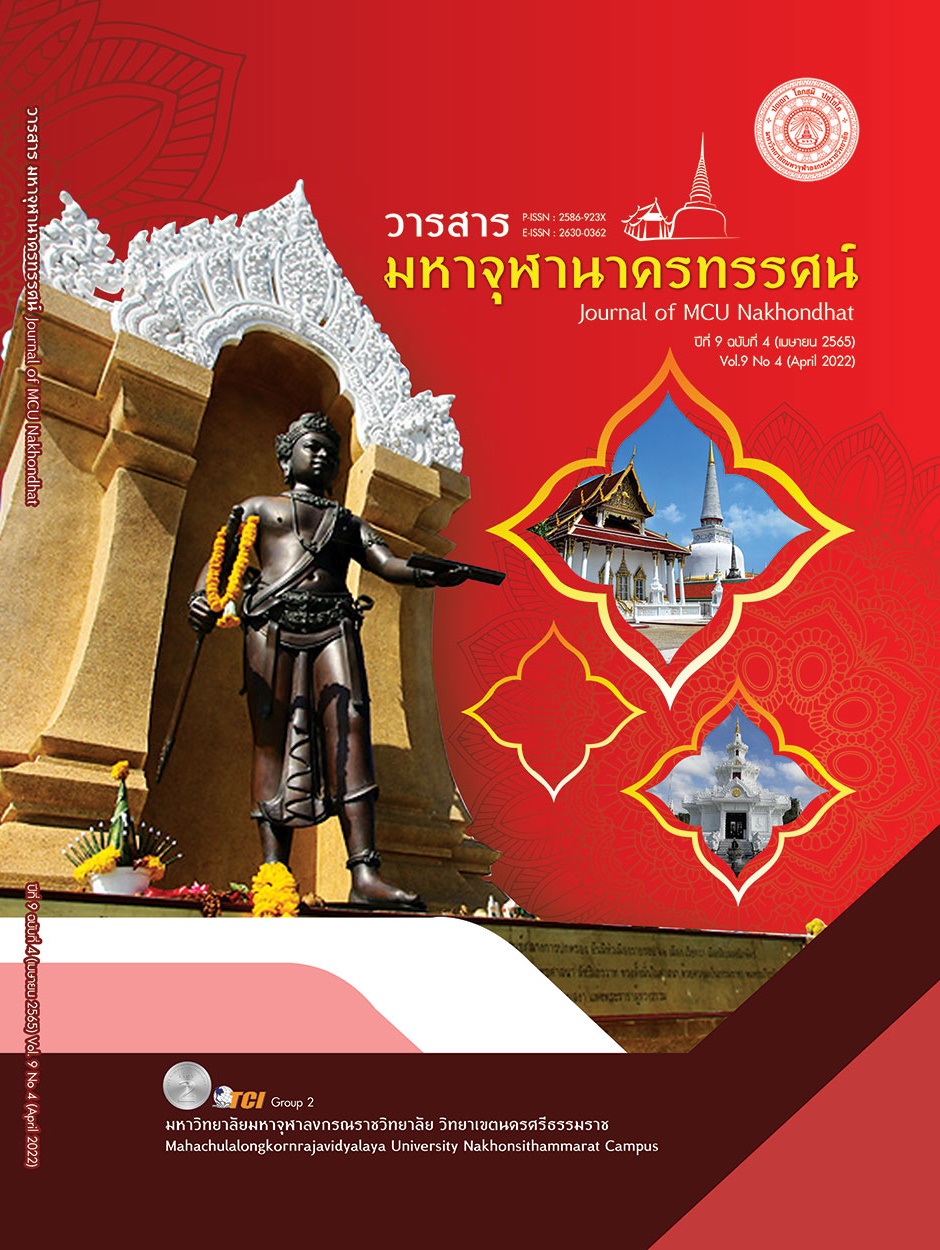กลยุทธ์เพื่อการพัฒนาสมรรถนะครูของโรงเรียนรังษีวิทยา สังกัดมูลนิธิแห่งสภาคริสตจักรในประเทศไทย
Main Article Content
บทคัดย่อ
บทความวิจัยนี้มีวัตถุประสงค์เพื่อ 1) ศึกษาสภาพปัจจุบันและสภาพที่พึงประสงค์สมรรถนะครูของโรงเรียนรังษีวิทยาสังกัดมูลนิธิแห่งสภาคริสตจักรในประเทศไทย 2) สร้างกลยุทธ์เพื่อพัฒนาสมรรถนะครูของโรงเรียนรังษีวิทยาสังกัดมูลนิธิแห่งสภาคริสตจักรในประเทศไทย ใช้ระเบียบวิธีวิจัยแบบผสมผสาน เชิงปริมาณ ประชากร คือ ผู้บริหาร หัวหน้า และครูผู้สอน จำนวน 182 คน กลุ่มตัวอย่าง สุ่มโดยใช้ตารางสำเร็จรูปของเครซี่ มอร์แกน ได้ 125 คน เลือกแบบชั้นภูมิตามสัดส่วน ตามโครงสร้างบริหาร จากนั้นสุ่มตัวอย่างง่ายโดยการจับฉลาก เชิงคุณภาพ กลุ่มผู้ให้ข้อมูล ใช้วิธีการเลือกแบบเจาะจง จำนวน 46 คน ได้แก่ ผู้บริหาร 7 คน หัวหน้า 12 คน ครู 15 คน กรรมการสถานศึกษา 3 คน ผู้ปกครองจำนวน 3 คน นักเรียน 3 คน ผู้นำชุมชน 3 คน รวม 46 คน เลือกจากกรรมการสถานศึกษา, กรรมการนักเรียน, สมาคมผู้ปกครอง และผู้มีส่วนได้เสียในการจัดการศึกษาของโรงเรียน ใช้การประชุมเชิงปฏิบัติการแบบมีส่วนร่วม เครื่องมือวิจัย ได้แก่ 1) แบบสอบถาม 2) แบบรายงานการประชุมเชิงปฏิบัติการแบบมีส่วนร่วม สถิติที่ใช้ ได้แก่ ค่าร้อยละ ค่าเฉลี่ย ส่วนเบี่ยงเบนมาตรฐาน ค่าดัชนี PNI วิเคราะห์เนื้อหา ผลการวิจัยพบว่า กลยุทธ์เพื่อการพัฒนาสมรรถนะครู ประกอบด้วยกลยุทธ์หลักดังต่อไปนี้ 1) การพัฒนาด้านคุณธรรมจริยธรรมและจรรยาบรรณวิชาชีพครู 2) การพัฒนาภาวะผู้นำครูอย่างมีประสิทธิภาพ 3) การพัฒนาตนเองสร้างองค์ความรู้และนวัตกรรมในการพัฒนาวิชาชีพอย่างมีคุณภาพ 4) การพัฒนาหลักสูตรและการจัดการเรียนรู้โดยเน้นผู้เรียนเป็นสำคัญ 5) ส่งเสริมและพัฒนาเพื่อสร้างสัมพันธภาพที่ดีในการทำงานเป็นทีม 6) พัฒนาการบริการจัดการชั้นเรียนอย่างมีประสิทธิภาพ กลยุทธ์รอง 13 กลยุทธ์ และโครงการสนองกลยุทธ์ 23 โครงการ
Article Details

อนุญาตภายใต้เงื่อนไข Creative Commons Attribution-NonCommercial-NoDerivatives 4.0 International License.
เอกสารอ้างอิง
เอกสารอ้างอิง
ฉันทนา บุญมาก. (2555). การศึกษาสมรรถนะครูโรงเรียนอนุบาลชลบุรีตามความรับรู้ของผู้มีส่วนเกี่ยวข้องในการจัดการศึกษา. ใน วิทยานิพนธ์การศึกษามหาบัณฑิต สาขาวิชาการบริหารการศึกษา. มหาวิทยาลยับูรพา.
ชื่นฤดี บุตะเขียว. (2560). กลยุทธ์การพัฒนาครูให้มีคุณลักษณะที่สอดคล้องกับศตวรรษที่ 21. ใน ดุษฎีนิพนธ์ศึกษาศาสตรดุษฎีบัณฑิต สาขาการบริหารการศึกษาและการจัด การศึกษา. มหาวิทยาลัยศรีนครินทรวิโรฒ.
ธารารัตน์ มาลัยเถาว์. (2560). กลยุทธ์การพัฒนาทักษะครูประถมศึกษา ตามแนวคิดการเรียนรู้ ด้วยการนำตนเอง สังกัดสำนักงานคณะกรรมการการศึกษาขั้นพื้นฐาน. วารสารวิจัย ทางการศึกษา คณะศึกษาศาสตร์ มหาวิทยาลัยศรีนครินทรวิโรฒ, 11(2), 306-319.
ประไพ ธรมธัช. (2553). การพัฒนารูปแบบการเสริมสร้างสมรรถนะทางวิชาการโดยใช้กลยุทธ์การปรับโครงสร้างองค์กรของฟูลแลน สำหรับครูประถมศึกษาของรัฐ. กรุงเทพมหานคร: จุฬาลงกรณ์มหาวิทยาลัย.
พิมพันธ์ เดชะคุปต์ และพรทิพย์ แข็งขัน. (2551). สมรรถนะและแนวทางการพัฒนาครู ในสังคมที่เปลี่ยนแปลง. ใน สำนักงานเลขาธิการสภาการศึกษา กระทรวงศึกษาธิการ. กรุงเทพมหานครสกศ.
สำนักงานคณะกรรมการการศึกษาขั้นพื้นฐาน. (2553). คู่มือการประเมินสมรรถนะครู. กรุงเทพมหานคร: สำนักงานคณะกรรมการการศึกษาขั้นพื้นฐาน.
สุคนธ์ สินธพานนท์. (2560). ครูยุคใหม่กับการจัดการเรียนรู้ สู่การศึกษา 4.0. กรุงเทพมหานคร: ห้างหุ้นส่วนจำกัด 9119 เทคนิคพริ้นติ้ง.
สุธรรม ธรรมทัศนานนท์. (2554). หลักการทฤษฎีและแนวปฏิบัติทางการบริหารการศึกษา. มหาสารคาม: สำนักพิมพ์มหาวิทยาลัยมหาสารคาม.
สุวิมล ว่องวาณิช. (2558). การวิจัยประเมินความต้องการจำเป็น. กรุงเทพมหานคร: สำนักพิมพ์แห่ง จุฬาลงกรณ์มหาวิทยาลัย.
อภิภา ปรัชญพฤทธิ์. (2560). การพัฒนารูปแบบการผลิตครูเพื่อรองรับการศึกษายุค 4.0. วารสารร่มพฤกษ์, 35(3), 101-136.
Sally Thomas. (2018). Improving Teacher Development and Educational Quality in China and East Asia. UK aid from the department for International Development University of Bristol. Retrieved January 30, 2562, from http://www.bristol.ac.uk/education/research/sites/ieeqc/


